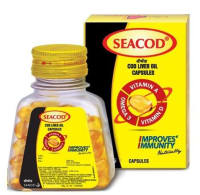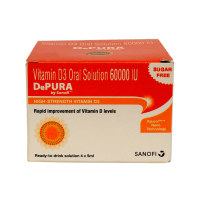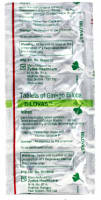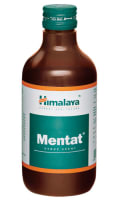USED FOR:
Local anesthesia (Numb tissues in a specific area)
COMPOSITION:
Prilocaine (NA)
Lidocaine (NA)
Therapeutic Uses:
pain analgesics

No interaction found

PROBABLY SAFE
Xynova P Gel is probably safe to use during pregnancy.Animal studies have shown low or no adverse effect on the foetus, however, there are limited human studies. Please consult your doctor.

Xynova P Gel is probably safe to use during lactation. Limited human data suggests that the drug does not represent a significant risk to the baby.

It is not known whether Xynova P Gel alters the ability to drive. Do not drive if you experience any symptoms that affect your ability to concentrate and react.

CAUTION
Xynova P Gel should be used with caution in patients with kidney disease. Dose adjustment of Xynova P Gel may be needed. Please consult your doctor.

CAUTION
Xynova P Gel should be used with caution in patients with liver disease. Dose adjustment of Xynova P Gel may be needed. Please consult your doctor.
Uses of Prilocaine
Prilocaine is used for local anesthesia.
How to use Prilocaine
Use this medicine in the dose and duration as advised by your doctor. Check the label for directions before use. Apply it on the affected area and allow it to stay before spitting or rinsing.
How Xynova P Gel works
Prilocaine works by blocking pain signals from the nerves to brain which decreases the sensation of pain.
Common Numbness, Slow heart rate, Cold, Decreased blood pressure, Increased blood pressure, Nausea, Sensation of warmth, Tingling sensation, Vomiting, Dizziness.
Expert advice for Prilocaine
Caution is to be exercised if you have any of the following conditions: glucose-6-phosphate deficiency, congenital or idiopathic methemoglobinemia (blood disorder in which an abnormal amount of methemoglobin, a form of hemoglobin is produced).
Prilocaine cream is for topical use only. Do not apply near the eyes or on open wounds.
Take precaution while using prilocaine as there is a possibility of temporary loss of sensation and muscle function.
Avoid unintentional trauma or injury to the lips, tongue, cheek mucosa, or soft palate when these structures are anesthetized; postpone ingestion of food until normal function returns.
The effect of prilocaine may increase for up to 3 hours under occlusive dressing and may persist for 1 to 2?hour even after removal of the cream.
Do not drive or operate machinery as prilocaine may make you feel sleepy.
Do not apply cream to larger areas or for longer times than those recommended.
Q. Is prilocaine an amide or ester?
Prilocaine is an amide
Q. What is prilocaine used to treat?
Prilocaine is used as a local anesthetic during superficial minor surgery and medical procedures
Q. Does prilocaine have epinephrine?
No, Prilocaine does not have epinephrine
Q. Is prilocaine stronger than lidocaine?
Prilocaine is similar to lidocaine but does not cause vasodilation and has lower CNS toxicity.
Uses of Lidocaine
Lidocaine is used for local anesthesia and arrhythmias.
How to use Lidocaine
Use this medicine in the dose and duration as advised by your doctor. Check the label for directions before use. Apply it on the affected area and allow it to stay before spitting or rinsing.
How Xynova P Gel works
Lidocaine works by blocking pain signals from the nerves to brain which decreases the sensation of pain.
Common Hormone imbalance, Allergic reaction, Slow growth in children and teenagers, Rash, Itching, Urticaria.
Expert advice for Lidocaine
Do not use more quantity of lidocaine than recommended as this may culminate into excessive absorption of drug causing serious side effects, such as fits.
Do not use this medicine in case of open wounds or damaged areas (especially in mouth) as this may result into excessive absorption of active ingredient.
Do not give this medicine to children under the age of 12 years.
Do not apply more frequently than every 3 hours.
Tell your doctor or pharmacist if you are taking, have recently taken, or might take any other medicines.
Consult your doctor before taking lignocaine if you are pregnant or lactating.
Q. Are lidocaine, lignocaine, and xylocaine the same things?
Yes. These are all the other names for an amide type local anesthetic, lidocaine. Lidocaine acts by stopping the sensation of pain by acting on peripheral nerves in the body. It is generally available as topical gel formulation however injections are also available
Q. Is lidocaine an opiate/ narcotic/ steroid drug/ omega 3/ nitrates/ cholesterol/ contain codeine/ sulpha?
No. Lidocaine (Lox) is an amide type local anesthetic used to relieve pain topically or by an injection. It is not an opiate narcotic, steroid, omega 3, nitrates, and cholesterol. It does not contain codeine or sulpha
Q. Is lidocaine and Lox2 safe?
Lidocaine (also available as Lox2) is safe for usage when applied topically as instructed by a doctor. Lidocaine in injectable formulation must not be self-medicated. Always follow the doctor's advice regarding its use
Q. Is lidocaine a controlled substance / addictive?
No. Lidocaine is not controlled substance or addictive
Q. Is lidocaine available over the counter?
No. It is categorized as schedule H drug in India and it is available only by prescription given by your docto
Q. Is Lox (lidocaine) safe to eat?
No. Lidocaine should never be taken by mouth
Q. Does lignocaine cause swelling/ drowsiness/ makes you high/ weight gain/ kill sperm?
Lignocaine is not known to cause swelling/ drowsiness/ makes you high/ weight gain/ kill sperm. However, if you experience such side effects consult your doctor
Q. Can I take Advil/ ibuprofen/paracetamol/ Tylenol/ Vicodin/ Nyquil with lidocaine?
Lignocaine can be taken with above mentioned drugs. Consult your doctor regarding its use.


 Xynova P Gel
Xynova P Gel  Bookmark
Bookmark



















